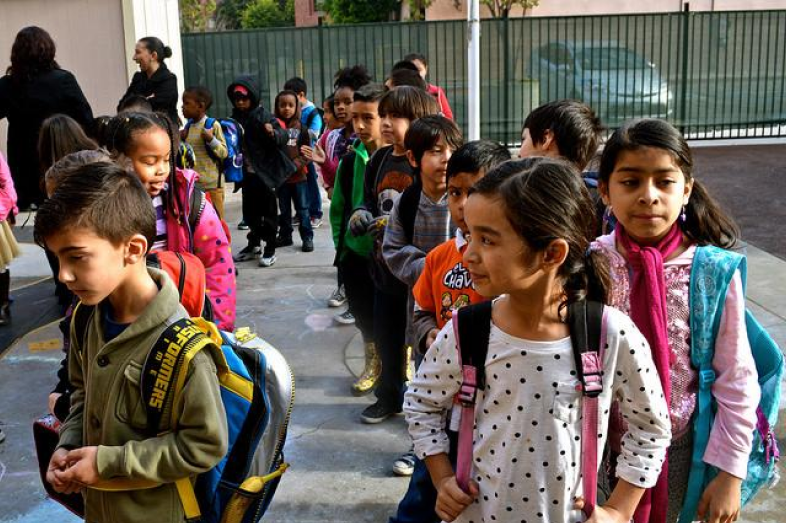

The number of Hispanic students enrolled in charter schools is growing, as is support for school choice among Hispanic parents, a new report by the National Alliance for Public Charter Schools shows.
A recent nationally representative parent survey conducted by the charter advocacy organization revealed that nearly 85 percent of Hispanic respondents are in favor of allowing parents to choose where their children attend public school, regardless of their address. The level of support ”should come as no surprise in a time when metric after metric indicates that Hispanic students, particularly those in urban areas, are continuing to fall behind their white peers,” the report states.
The number of Hispanic students in charter schools — schools that are publicly funded but independently managed, operating with more autonomy and flexibility under a charter agreement — grew from 21 percent of the student population in the 2003-04 school year to 30 percent in 2013-14. (By comparison, about 25 percent of all public school students are Hispanic.)
Last year, The Center for Research on Education Outcomes at Stanford University released a study of charter schools in 41 urban areas, which found Hispanic and black students, English-language learners and other disadvantaged students see stronger academic growth in charter schools when compared to peers in traditional public schools. Charter school Hispanic students from low-income households also received the equivalent of 48 days of additional learning in math and 25 in reading in charter schools, according to the analysis.
Charter schools — and their results — remain highly controversial, however. As Sarah Carr wrote for EWA’s Topics page on charters and school choice, most researchers concur student performance at charter schools is not significantly better or worse than traditional public schools, on average.
She continues:
“Critics pointedly note that charter schools have failed to transform public education and continue to draw outsized attention and private funding given what they see as mediocre results. But charter supporters home in on the hundreds of charter schools that are outperforming their traditional counterparts, arguing that it’s these outliers whose work and approach should — and can — be replicated.”